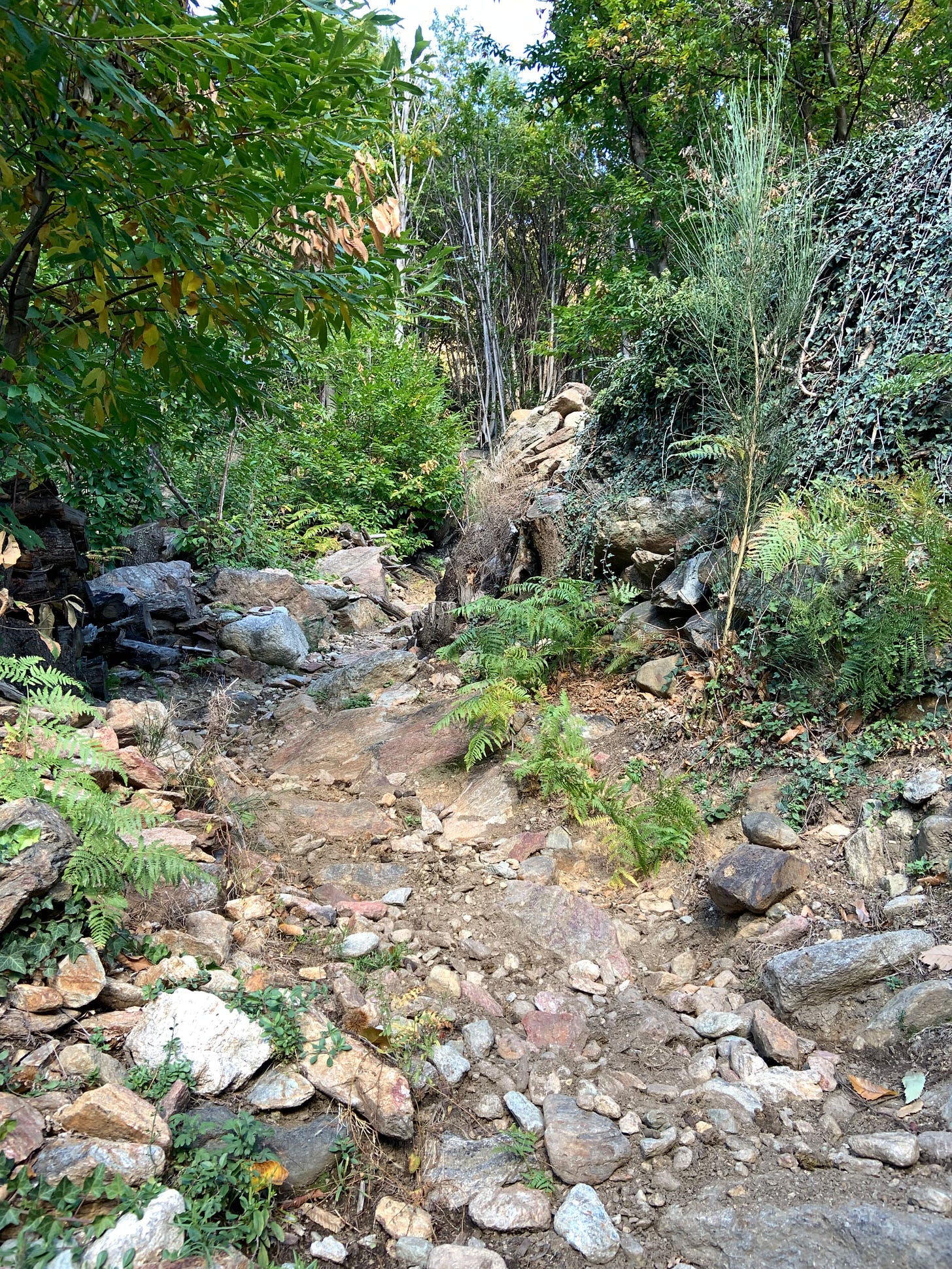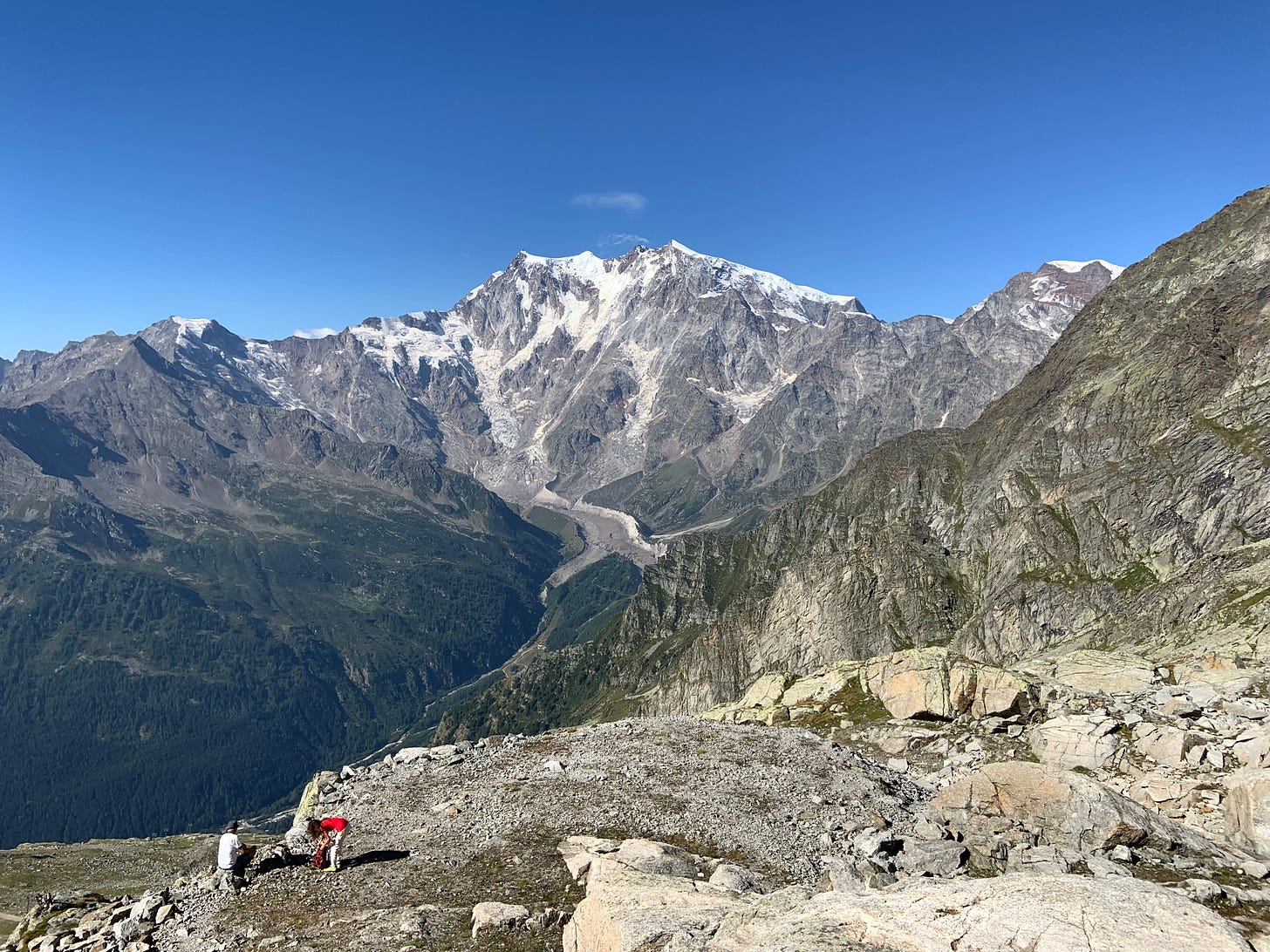Rambling Around Where We Live
“Nature Pill” is one of the most powerful medicines. It's scientifically proven to boost immunity, increase energy levels, and improve mental clarity. And move away to cardiovascular diseases.
I wouldn't say I like running. As the years pass, running becomes more and more an activity that I refuse. Even if I tell you the truth: several times, my friends tried to convince me to start running with them. Did you know that there is a sport called running in the mountains? One acquaintance in particular, a fervent advocate for the sport, tirelessly sought to recruit me for their mountain running escapades. It's almost comical how they've attempted to sway me, recounting tales of their exhilarating mountain runs and the camaraderie of group outings.
They even have a race that covers 330 kilometers called "Tor des Géants", which takes place from September 8th to 14th this year and starts from Courmayeur in Aosta Valley.
But why do I share this anecdote? Because I want to explain that I prefer slow movement. Not only because my health doesn't allow me to make great efforts, but, above all, because I want to "savor" what is around me.
When I stroll, it's not merely a means of getting from point A to point B; it's a multisensory experience. I take photos of everything I see that is interesting, I observe the plants, and savor the symphony of avian melodies and babbling brooks. I stop to see who is making noise among the fallen leaves and trees, and also to chat with the people I meet on the street.
However, intriguing studies show that fast movement is much healthier than slow movement. These studies involve the observation of 50,000 people over 14 years, revealing compelling findings.
Compared to slow walkers, brisk or fast walkers aged 45-59 had 36% lower risk of early death from any cause.
According to these findings, individuals aged 45-59 who engaged in brisk or fast walking exhibited a remarkable 36% lower risk of premature mortality compared to their slower-paced counterparts.
Health experts advocate for a walking speed ranging from 4 to 6 kilometers per hour for a minimum of 30 minutes daily. It's amusing to note that some groups have taken to jogging within the confines of shopping malls—an endeavor I find dubious in its health benefits, given the stagnant air quality.
Hiking entails prolonged periods of movement, often spanning entire days, particularly in mountainous regions like Italy, characterized by undulating terrain and challenging elevation changes.
Studies suggest that 16 minutes of running equates to 56 minutes of walking, necessitating a substantial time investment to maintain optimal activity levels. However, recent research conducted in Australia highlights the overarching importance of any form of physical activity, regardless of intensity.
This study emphasizes the significance of breaking sedentary habits, with recommended daily step counts ranging from 8,600 for younger individuals to 3,800 for those in their golden years. Such insights not only inform individual lifestyle choices but also hold implications for healthcare policy aimed at reducing societal healthcare burdens.
In my journey, I've come to realize that the path to wellness is multifaceted and often nuanced. Yet, amidst the complexities, one truth remains steadfast: the imperative of prioritizing physical activity in our daily lives.






